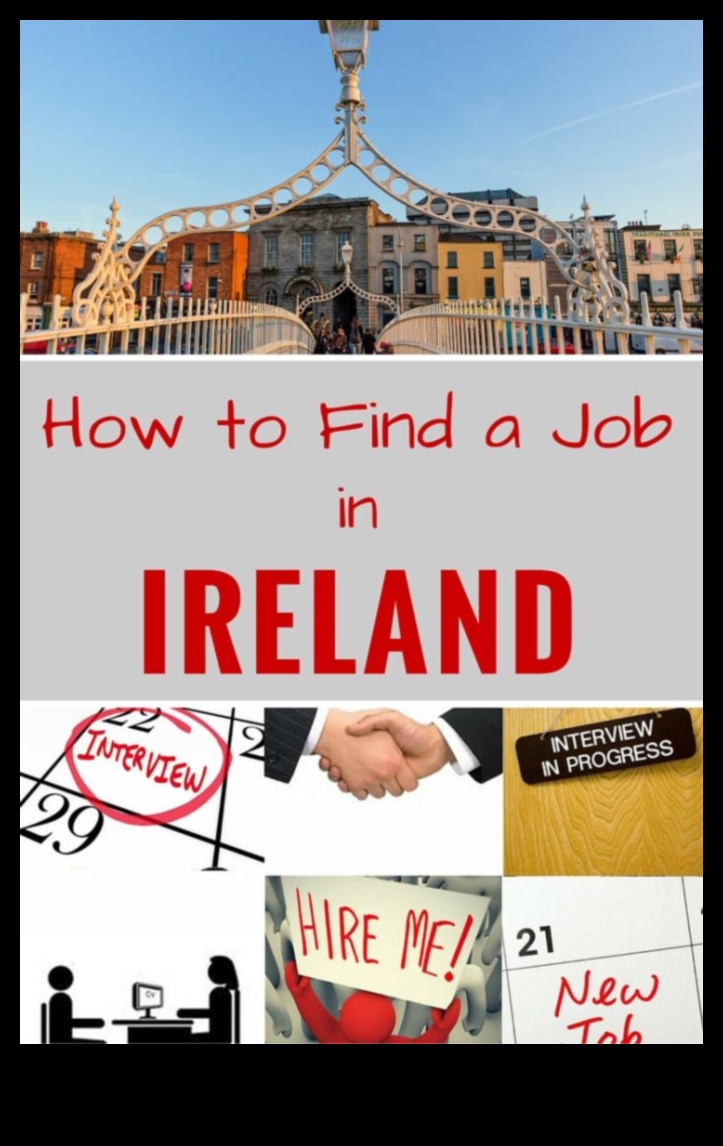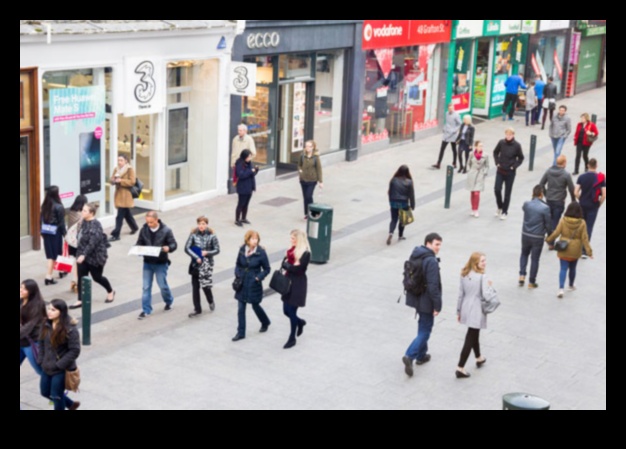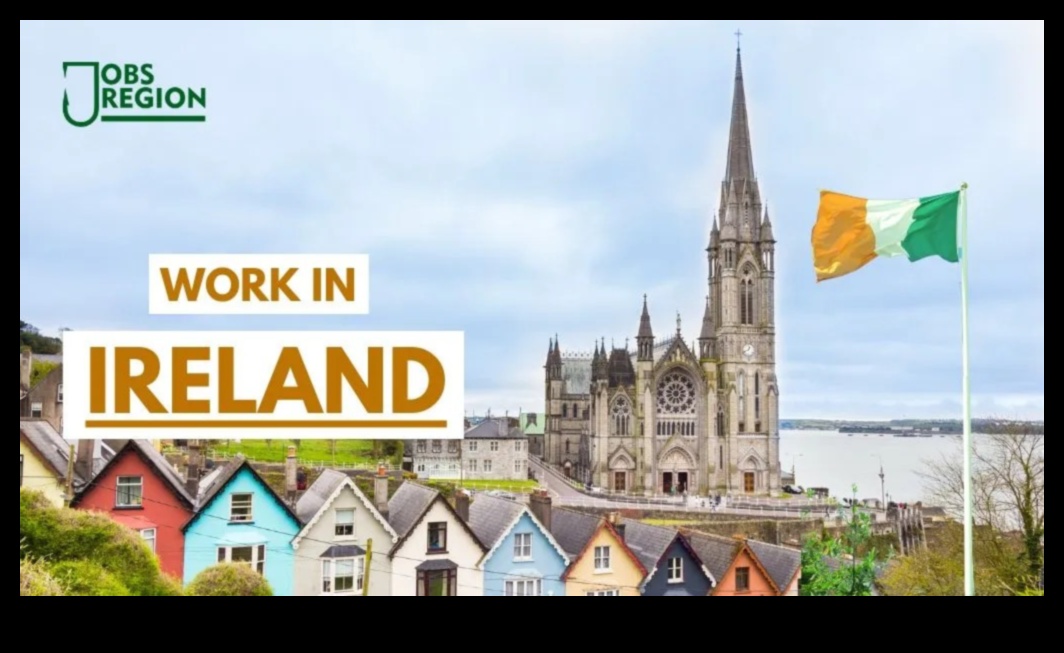
How can a foreigner get a job in Ireland?
The search intent of the keyword “how can a foreigner get a job in ireland” is to find information on how to get a job in Ireland as a foreigner. This could include information on the visa requirements, the job market, and the cultural differences that foreigners may face.
Here is a brief overview of the process of getting a job in Ireland as a foreigner:
-
Find out if you need a work visa.
-
Create a CV and cover letter tailored to the Irish job market.
-
Start networking with people in your field.
-
Apply for jobs online and through recruitment agencies.
-
Prepare for the interview process.
-
Negotiate your salary and benefits.
-
Move to Ireland and start your new job!
- Health insurance
- Paid vacation
- Sick leave
- Pension plan
- Childcare allowance
- Relocation assistance
- Accommodation
- Transportation
- Healthcare
- Education
- Social life
For more detailed information on each of these steps, please see the following sections:
| Feature | Answer |
|---|---|
| Foreign job search Ireland | Information on how to find a job in Ireland as a foreigner, including visa requirements, the job market, and cultural differences. |
| Work visa Ireland | Information on the different types of work visas available in Ireland, including eligibility requirements and application procedures. |
| Immigration Ireland | Information on the different ways to immigrate to Ireland, including permanent residency and citizenship. |
| Employment Ireland | Information on the different types of employment available in Ireland, including salaries, benefits, and working conditions. |
| Job opportunities Ireland | Information on the latest job openings in Ireland, including specific industries and companies that are hiring. |

II. Requirements for working in Ireland
In order to work in Ireland, you must have a valid work permit or visa. Work permits are issued by the Irish Department of Justice and Equality, and visas are issued by the Irish Embassy or Consulate in your home country.
The requirements for obtaining a work permit or visa vary depending on your nationality and the type of work you will be doing. For more information, please visit the Irish Department of Justice and Equality website.
In addition to a work permit or visa, you will also need to have a valid passport and a proof of your qualifications.
If you are a citizen of the European Union (EU), you do not need a work permit to work in Ireland. However, you may need to register with the Irish Immigration Service.
If you are a citizen of a non-EU country, you will need to obtain a work permit or visa in order to work in Ireland. The requirements for obtaining a work permit or visa vary depending on your nationality and the type of work you will be doing.
III. How to find a job in Ireland
There are a few different ways to find a job in Ireland as a foreigner.
One way is to use online job boards. There are a number of different job boards that cater specifically to foreigners looking for work in Ireland. Some of the most popular job boards include:
Another way to find a job in Ireland is to contact recruitment agencies. Recruitment agencies can help you find a job that matches your skills and experience. Some of the most popular recruitment agencies in Ireland include:
You can also find jobs in Ireland by attending job fairs. Job fairs are a great way to meet with potential employers and learn about different job opportunities. Some of the most popular job fairs in Ireland include:
Finally, you can also find jobs in Ireland by networking with people who are already working in the country. Networking is a great way to learn about job openings that are not advertised publicly. You can network with people by attending industry events, joining professional organizations, or connecting with people on social media.
IV. The Irish job marketThe Irish job market is relatively strong, with unemployment at around 5%. The economy is growing, and there are a number of sectors that are particularly in demand for foreign workers. These include:
* IT
* Pharmaceuticals
* Financial services
* Engineering
* Healthcare
The average salary in Ireland is around €40,000 per year. However, salaries can vary significantly depending on the sector and the level of experience.
V. The application process
The application process for a job in Ireland will vary depending on the employer and the position you are applying for. However, there are some general steps that you can follow to increase your chances of success.
1. Research the company and the position you are applying for. This will help you to tailor your application to the specific needs of the employer.
2. Write a strong resume and cover letter. Your resume should be concise and highlight your skills and experience. Your cover letter should be tailored to the specific position you are applying for and should explain why you are the best candidate for the job.
3. Network with people in your field. This is a great way to learn about job openings and to get your foot in the door. Attend industry events, join professional organizations, and connect with people on LinkedIn.
4. Apply for jobs online. This is the most common way to apply for jobs in Ireland. Make sure to tailor your application to each job posting and to include a cover letter.
5. Follow up with employers. After you have applied for a job, it is important to follow up with the employer to let them know that you are interested in the position. You can do this by sending a thank-you note after your interview or by calling the employer to check on the status of your application.

VI. Salary and benefits
The average salary in Ireland is €45,499 per year. However, salaries vary depending on the industry and the level of experience. For example, the average salary for a software engineer is €65,000 per year, while the average salary for a nurse is €35,000 per year.
In addition to salary, employees in Ireland also receive a number of benefits, such as health insurance, paid vacation, and sick leave. The exact benefits offered by an employer will vary, but some of the most common benefits include:
It is important to note that the cost of living in Ireland is relatively high. The average monthly rent for a one-bedroom apartment in Dublin is €1,500. However, there are many other cities in Ireland where the cost of living is more affordable.
Overall, the salary and benefits offered by employers in Ireland are competitive with those offered in other countries. However, it is important to consider the cost of living before making a decision to move to Ireland.

VII. Work permits and visas
In order to work in Ireland, you will need a work permit or visa. The type of permit or visa you need will depend on your nationality and the type of work you will be doing.
For citizens of the European Union (EU), the European Economic Area (EEA), and Switzerland, there are no work permit or visa requirements. You can simply move to Ireland and start working.
For citizens of other countries, you will need to apply for a work permit or visa. The process for applying for a work permit or visa can be complex, so it is important to start your research early.
You can find more information on work permits and visas on the website of the Irish Department of Justice and Equality.

Moving to Ireland
Moving to Ireland can be a daunting task, but it can also be an incredibly rewarding experience. There are a number of things you need to consider before making the move, including the cost of living, the job market, and the cultural differences.
The cost of living in Ireland is generally higher than in other parts of Europe, but it is still lower than in many other countries. The average monthly rent for a one-bedroom apartment in Dublin is around €1,500, while the average monthly rent for a one-bedroom apartment in Cork is around €1,200.
The job market in Ireland is strong, with a number of different industries looking for skilled workers. The most in-demand industries include technology, healthcare, and financial services.
The cultural differences between Ireland and other countries can be significant. Irish people are generally very friendly and welcoming, but they can also be reserved and private. It is important to be respectful of Irish culture and to learn about the country’s history and traditions.
If you are considering moving to Ireland, there are a number of resources available to help you. The Irish government has a website dedicated to helping foreigners move to the country, and there are also a number of private companies that offer relocation services.
IX. Living in Ireland
After you have secured a job and a work visa, you will need to start planning your move to Ireland. Here are a few things you need to consider:
Ireland is a relatively expensive country to live in, so it is important to make a budget and plan your finances accordingly. You can find more information on the cost of living in Ireland on the Citizens Information website.
Once you have settled into your new life in Ireland, you will be able to enjoy all that the country has to offer. Ireland is a beautiful country with a rich culture and history. There are plenty of things to see and do, from exploring the stunning countryside to visiting the many historical sites. You will also find a warm and welcoming community of people who are always happy to welcome new arrivals.
X. FAQ
Q: What are the visa requirements for working in Ireland?
A: Foreign nationals who wish to work in Ireland must obtain a work permit or visa. The type of permit or visa you need will depend on your nationality and the type of work you will be doing. For more information, please visit the Immigration and Citizenship Services Ireland website.
Q: What is the job market like in Ireland?
A: The Irish job market is strong, with a variety of opportunities available in both the public and private sectors. The unemployment rate is currently at 5.3%, which is below the EU average of 6.8%. For more information on the job market in Ireland, please visit the IrishJobs.ie website.
Q: What are the cultural differences that foreigners may face in Ireland?
A: Ireland is a multicultural country, and there is a lot of diversity in terms of culture, religion, and language. However, there are some cultural differences that foreigners may find challenging, such as the Irish sense of humor, the Irish work ethic, and the Irish drinking culture. For more information on cultural differences in Ireland, please visit the Ireland.com website.